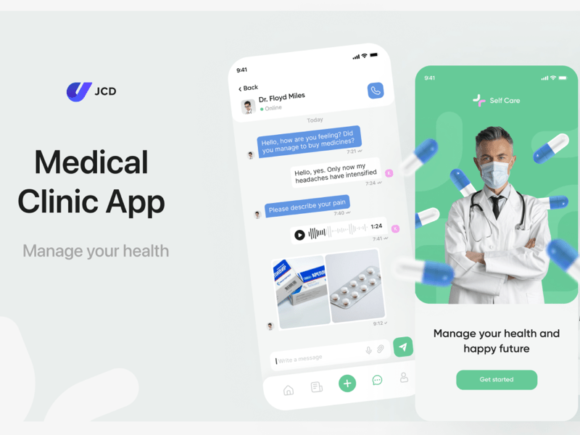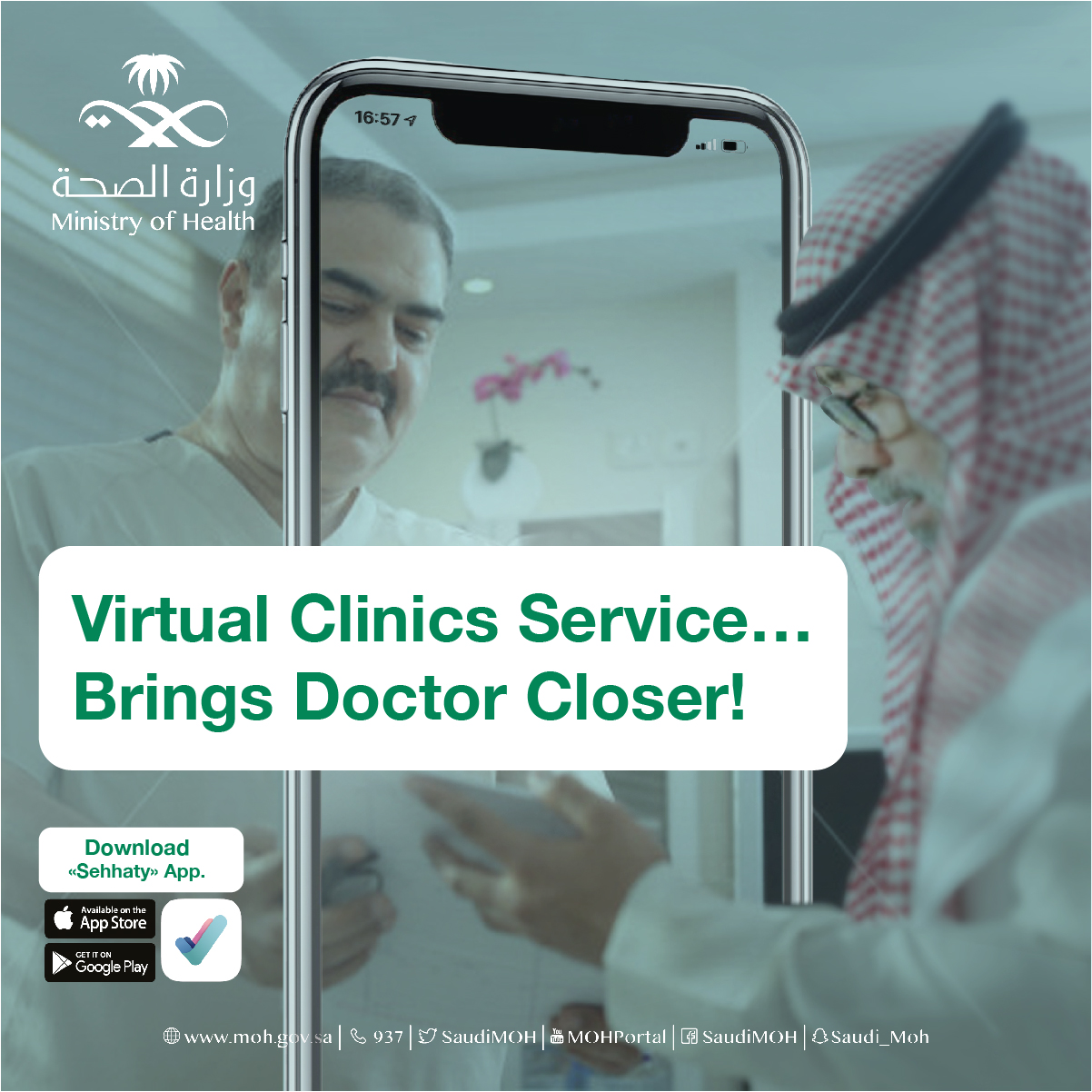Improve Operations: Why Your Clinic Demands a Mobile App for Clinics Now
Improve Operations: Why Your Clinic Demands a Mobile App for Clinics Now
Blog Article
The Future of Health Care: Why Clinics Required a Mobile App Today
As the medical care landscape remains to progress, clinics deal with placing pressure to adjust to individual assumptions for greater benefit and accessibility. The combination of mobile applications can work as an essential method for boosting patient engagement and simplifying operations. By leveraging modern technology to improve communication and supply essential services, centers not just resolve current demands however additionally place themselves for future success. However, the ramifications of this shift prolong past plain functional efficiency; they could redefine patient connections and care shipment in extensive means. What might this change appear like for both individuals and facilities?
Changing Patient Assumptions
As the landscape of healthcare advances, patient expectations are undertaking a substantial change. Today's people are increasingly seeking benefit, access, and customized treatment. With the surge of technology, especially mobile applications, people now prepare for a smooth combination of health care solutions right into their daily lives. They want the ability to take care of appointments, access clinical records, and connect with medical care carriers with their smart devices, showing a shift in the direction of a much more aggressive technique to health administration.
Additionally, people are becoming a lot more notified and encouraged, typically looking into problems and therapies on the internet before consultations. This increased understanding is paired with a need for openness in healthcare processes, consisting of cost quotes and therapy choices. As a result, companies are urged to adjust by adopting electronic devices that enhance the person experience.
The assumption for efficient and prompt communication has never ever been higher, with numerous clients thinking about responsiveness a vital element of high quality treatment. mobile app for clinics. In this progressing landscape, health care organizations must recognize these changing expectations and utilize mobile applications to cultivate an extra patient-centric method, ensuring that they not just meet yet surpass the criteria set by today's educated customers
Enhancing Client Involvement

Mobile applications facilitate communication in between patients and health care suppliers, allowing real-time appointment organizing, pointers for drug adherence, and direct messaging attributes. These performances not just enhance ease however additionally develop a feeling of responsibility amongst people. Mobile applications can provide academic material tailored to private requirements, aiding patients much better recognize their problems and therapy alternatives.
The integration of gamification components within healthcare apps can also motivate individuals to engage in healthy and balanced habits, enhancing positive way of life changes. Inevitably, enhancing person interaction via mobile applications leads to improved health and wellness outcomes, better person complete satisfaction, and an extra joint healthcare experience.
Enhancing Facility Workflow
Enhancing clinic operations is important for boosting workflow effectiveness and maximizing individual care. The application of mobile applications can dramatically decrease administrative problems, enabling healthcare companies to concentrate more on client interactions. By automating appointment scheduling, client check-ins, and payment procedures, facilities can minimize wait times and enhance general functional performance.
Mobile applications also assist in real-time accessibility to person records, enabling health care experts to make educated choices promptly. This immediacy not just enhances the quality of treatment but also decreases hop over to here the likelihood of errors related to misplaced or outdated information. Additionally, leveraging mobile innovation supports an extra orderly approach to taking care of patient follow-ups and treatment plans, ensuring that no essential steps are forgotten.
Additionally, mobile apps can streamline supply management by providing clinics with devices to check products and medicines effectively. This enables prompt replenishment and assists avoid disturbances in client treatment because of stock lacks. By integrating these performances right into their everyday procedures, centers can develop a much more cohesive and reliable atmosphere, inevitably resulting in enhanced patient end results and contentment. Accepting mobile technology is not just a trend; it this article is an essential development in the healthcare landscape.
Improving Communication Channels
Reliable interaction is often pointed out as a foundation of top quality healthcare delivery. In today's hectic clinical environment, mobile applications can substantially boost interaction networks in between facilities, clients, and doctor. By incorporating mobile apps into their procedures, facilities can facilitate real-time interactions, making sure that people receive timely info regarding their consultations, examination outcomes, and treatment plans.
Mobile apps also empower clients to interact directly with their health care teams through protected messaging features. This direct line of communication promotes a feeling of involvement and enables for instant explanation of problems, which can bring about far better adherence to therapy methods. Moreover, push notices can remind individuals of upcoming visits or medicine routines, minimizing no-show rates and enhancing general health and wellness results.

Staying Competitive in Medical Care
In a rapidly progressing healthcare landscape, organizations need to focus on innovation and flexibility to keep an one-upmanship. The assimilation of mobile applications right into healthcare official website services is no more optional; it is essential for centers intending to boost patient interaction, enhance procedures, and improve general solution distribution.
As patients significantly rely upon digital platforms for health administration, centers that fall short to adopt mobile modern technology risk falling back. A well-designed mobile app can use attributes such as consultation scheduling, telemedicine assessments, and accessibility to medical records, supplying clients with ease and fostering loyalty.

Rivals are likewise purchasing mobile options, so staying ahead needs continuous renovation and staying educated about technical developments. Facilities should not just carry out mobile applications but likewise take part in routine updates and improvements. Eventually, the effective integration of mobile innovation will differentiate forward-thinking healthcare organizations and established the benchmark for patient-centric care in an electronic world.
Final Thought
In conclusion, the assimilation of mobile applications in facilities is essential to address the developing landscape of individual expectations. Ultimately, the tactical implementation of mobile apps stands for a critical action towards providing available and individualized medical care, therefore satisfying the demands of today's equipped clients.
Ultimately, enhancing person interaction with mobile applications leads to boosted wellness results, greater patient complete satisfaction, and an extra collaborative medical care experience.Mobile apps also help with real-time access to person documents, enabling medical care specialists to make informed choices rapidly. In today's hectic clinical setting, mobile applications can dramatically boost interaction channels in between clinics, individuals, and healthcare service providers.Mobile applications likewise encourage patients to connect directly with their medical care teams with secure messaging functions. Ultimately, the calculated implementation of mobile apps stands for a vital action toward supplying obtainable and customized medical care, thus fulfilling the demands of today's empowered patients.
Report this page